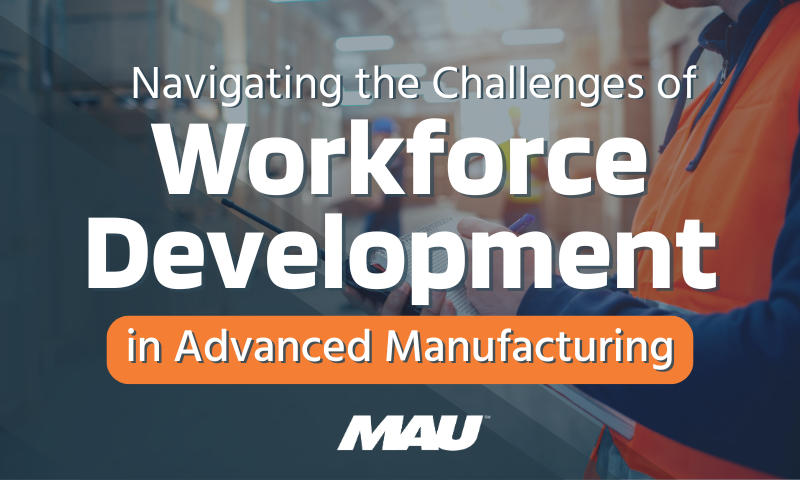Sustainability in manufacturing has become a critical issue for businesses in all industries, but it is especially important for manufacturers. The manufacturing process has a large environmental impact, and sustainable practices can help mitigate that impact.
The Inflation Reduction Act promises $369 billion for initiatives like manufacturing clean energy products, reducing emissions, and climate justice. Reports show that this could lead to 1.5 million new jobs by 2030, with over 300 unique occupations being created by an expanding clean energy sector.
In this blog post, we will discuss the impact of sustainability on manufacturing and explore some of the strategies companies can use to make their supply chains more sustainable.
What is sustainability, and why is it important for manufacturing businesses to consider it in their operations
Sustainability is the practice of using resources responsibly to meet current needs without compromising the ability of future generations to meet their own needs. It involves understanding and minimizing the environmental impact of production, consumption, and disposal activities. In manufacturing, sustainability can reduce materials, energy use, waste management, and transportation costs.
In today’s world, customers and stakeholders increasingly hold businesses accountable for their sustainability practices. According to a CBS poll, 70% of Americans believe human activity contributes to climate change, and 56% believe we should act now to tackle it. By implementing sustainable solutions, companies can ensure they meet customer expectations and attract new business. In addition, businesses that practice sustainability often find that they are more efficient and profitable in the long run.
The environmental, economic, and social benefits of adopting sustainable manufacturing processes can positively impact the business’s bottom line. The strategies for improving sustainability in manufacturing processes vary, but some common tactics include using renewable energy sources, implementing efficient production processes, and using sustainable materials. Renewable energy sources like solar or wind can be used to power manufacturing plants. Companies can also invest in efficient production processes, such as automation and better use of materials. Finally, businesses can look for sustainable materials that require less energy and fewer resources to produce.
Sustainability is an important issue for all manufacturing businesses, but it’s especially critical for those with global supply chains. Companies must ensure their suppliers use sustainable practices to reduce their environmental impact. Companies can work with suppliers to establish sustainability goals, audit their supply chain for compliance, and provide them with resources to help them meet those goals.
How manufacturers can implement sustainable practices in their operations
Companies must first assess their current operations to implement sustainable practices in manufacturing operations. This includes looking at the materials they use, the energy sources they rely on, and their production processes. Once a business has identified areas that need improvement, it can develop a sustainability plan to address those issues.
The plan should include strategies for reducing waste and energy consumption, increasing the efficiency of production processes, and using more sustainable materials. Companies can also look for ways to reuse or recycle materials whenever possible. Additionally, businesses should consider investing in renewable energy sources such as solar or wind power.
Sustainability is an increasingly important issue for manufacturers, but it can be overwhelming to tackle alone. Investing in a strategic partner can make the journey toward sustainability easier and more successful. Strategic partners can help companies identify areas of improvement, develop a sustainability plan, and provide resources to ensure success.
The impacts of sustainability on manufacturing are far-reaching and can bring significant economic and environmental benefits. Companies that take steps to incorporate sustainable practices into their operations will set themselves up for long-term success. By assessing their current operations, developing a sustainability plan, and investing in strategic partners, businesses can ensure they are prepared for the future.
What challenges could arise when transitioning to a more sustainable manufacturing process?
Transitioning to a more sustainable manufacturing process can present challenges, including cost, time, and resource constraints. Companies must consider the cost of investing in renewable energy sources or new production processes and determine how much they will spend. There may also be delays as businesses adjust their operations and supply chains to accommodate changes in materials or resources. Finally, businesses must ensure they have the necessary resources to sustain their new operations and that suppliers comply with sustainability measures.
Overall, transitioning to more sustainable manufacturing processes comes with a cost but can provide long-term economic and environmental benefits. Companies should carefully weigh the pros and cons of investing in sustainability initiatives before making any decisions. By taking an informed approach and investing in strategic partners, businesses can ensure their successful transition to a more sustainable process.
Sustainability is an ongoing process that requires commitment and effort from companies. To ensure their sustainability efforts remain effective in the long term, companies should adopt best practices such as tracking energy consumption, implementing energy efficiency measures, monitoring supply chains for compliance with sustainability standards, and investing in renewable energy sources. Companies should also look for ways to reduce waste and reuse materials whenever possible.
To succeed, sustainability must be at the core of a company’s operations. By proactively partnering with supply chain experts, businesses can ensure they are prepared for the future and reap sustainable practices’ economic, environmental, and social benefits.
For more information on building a modern, resilient supply chain, check out this White Paper!





